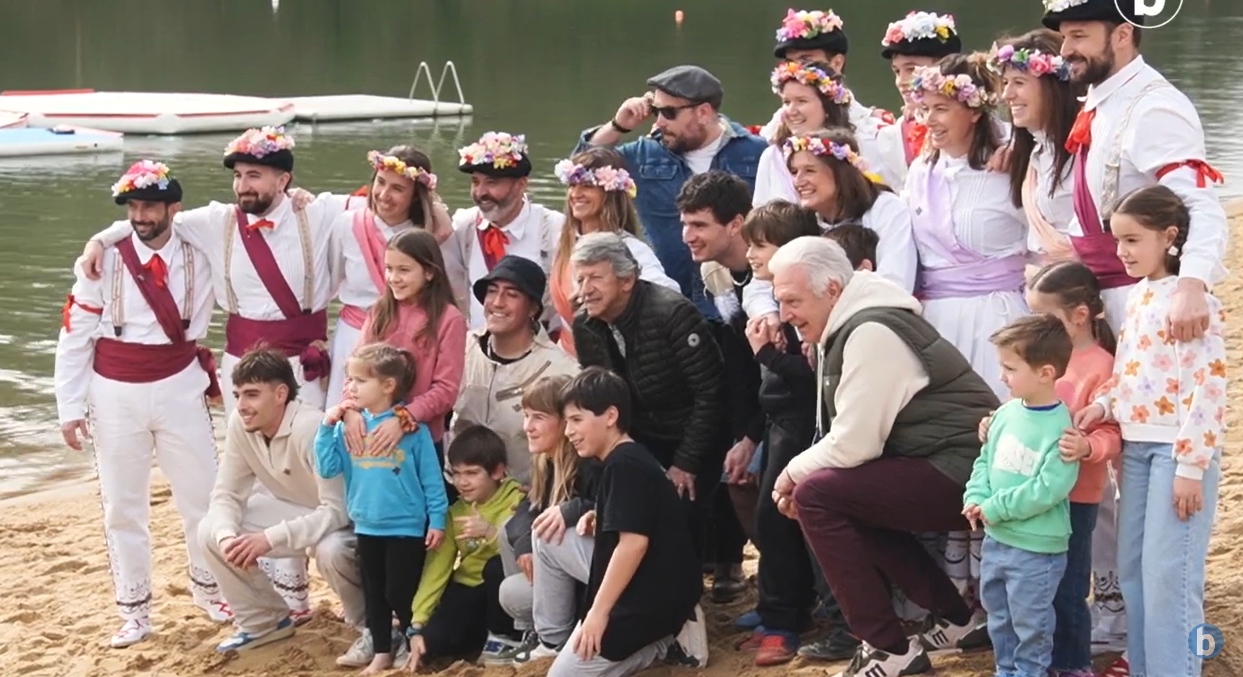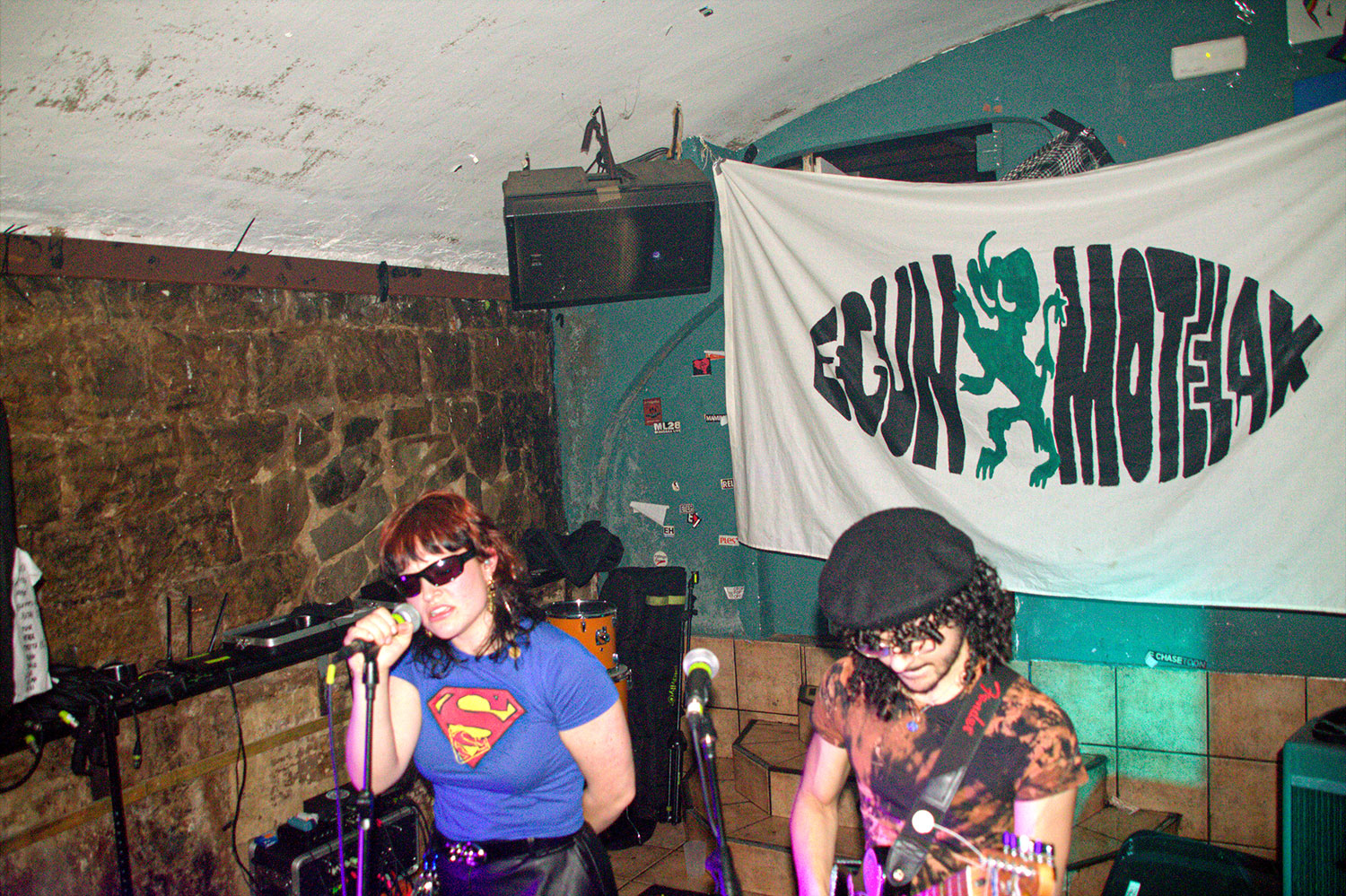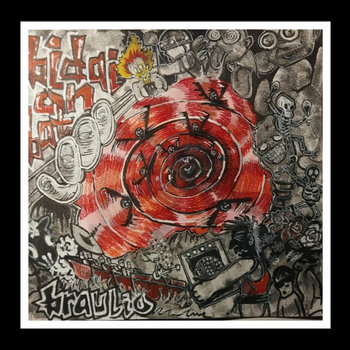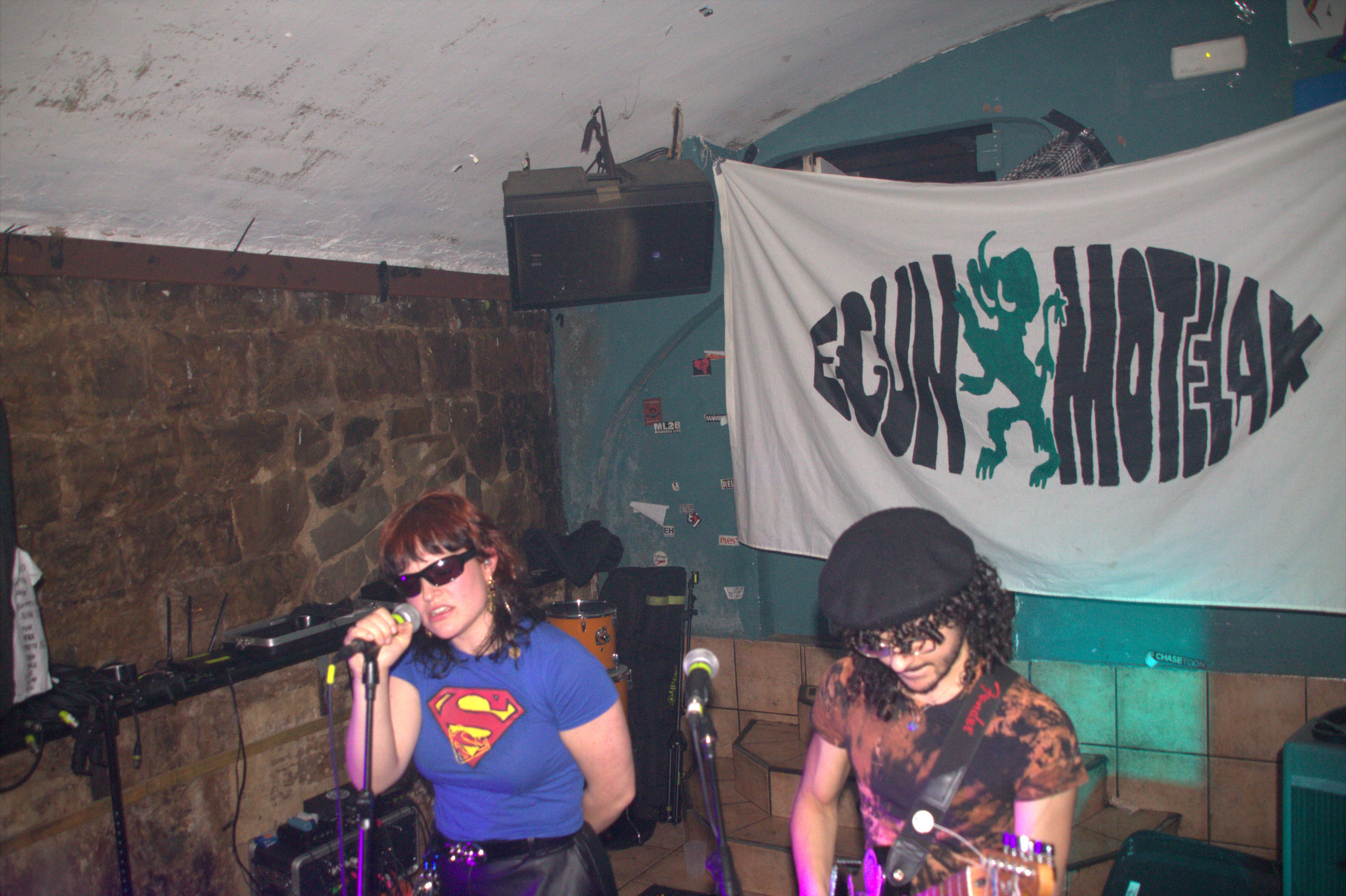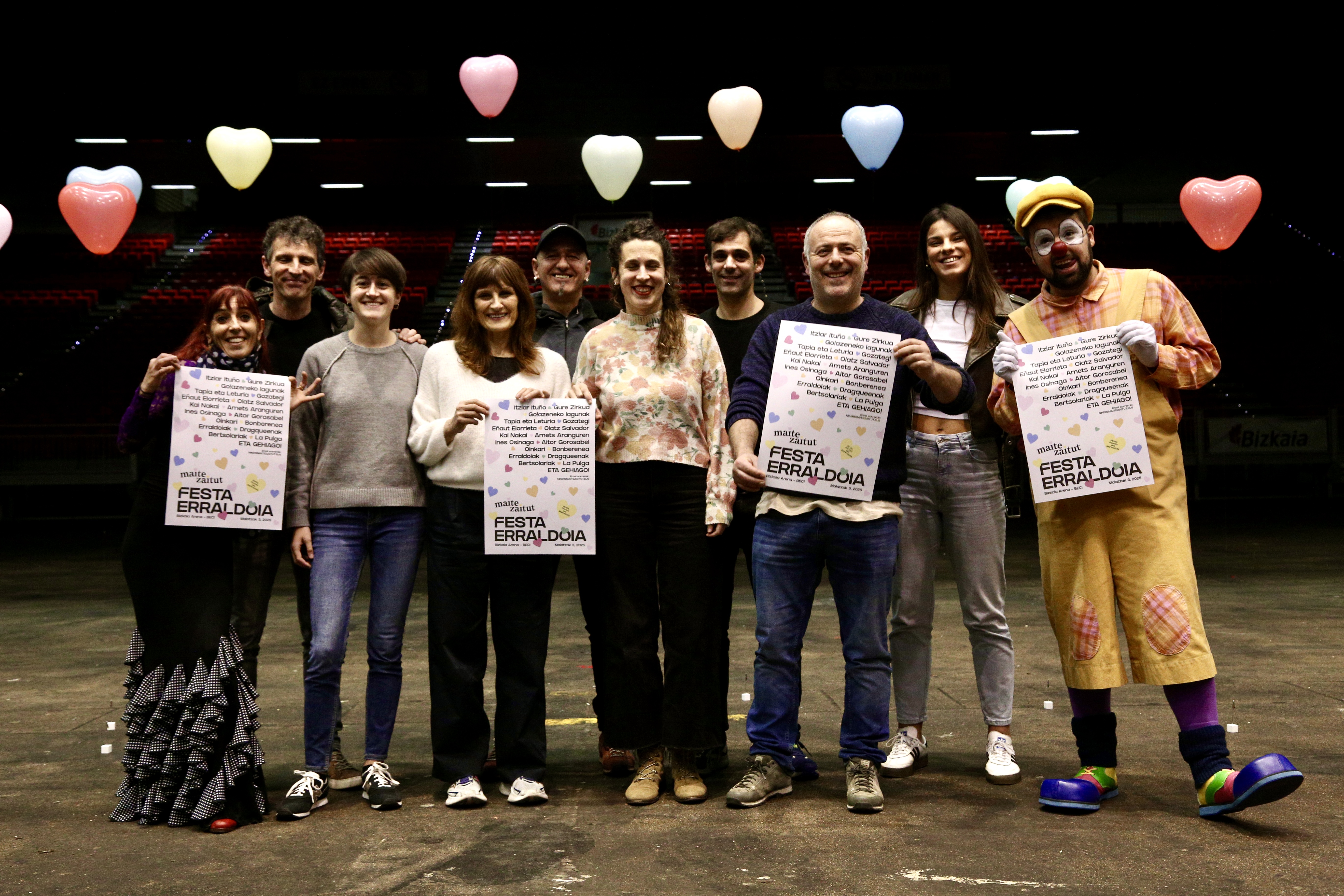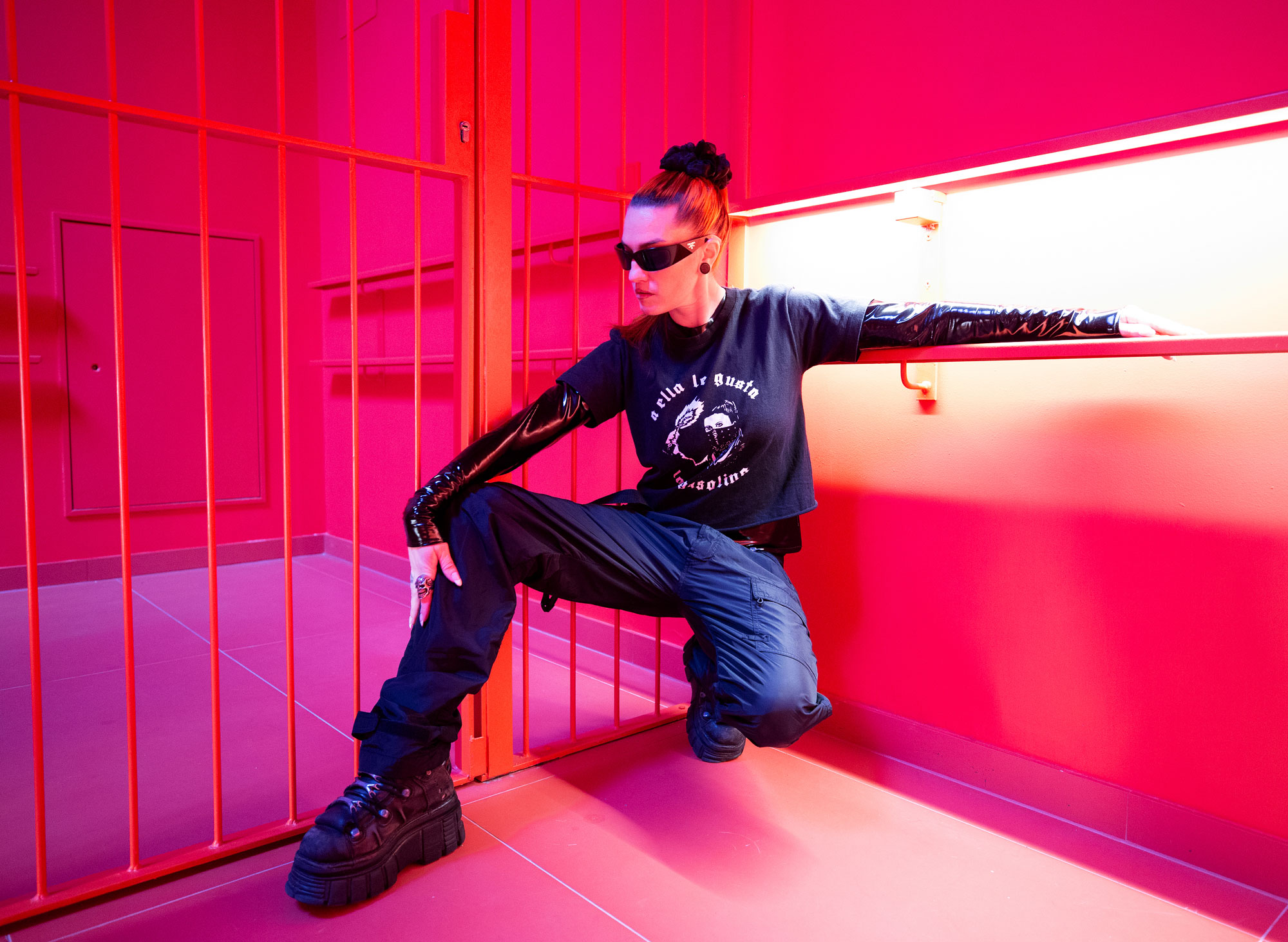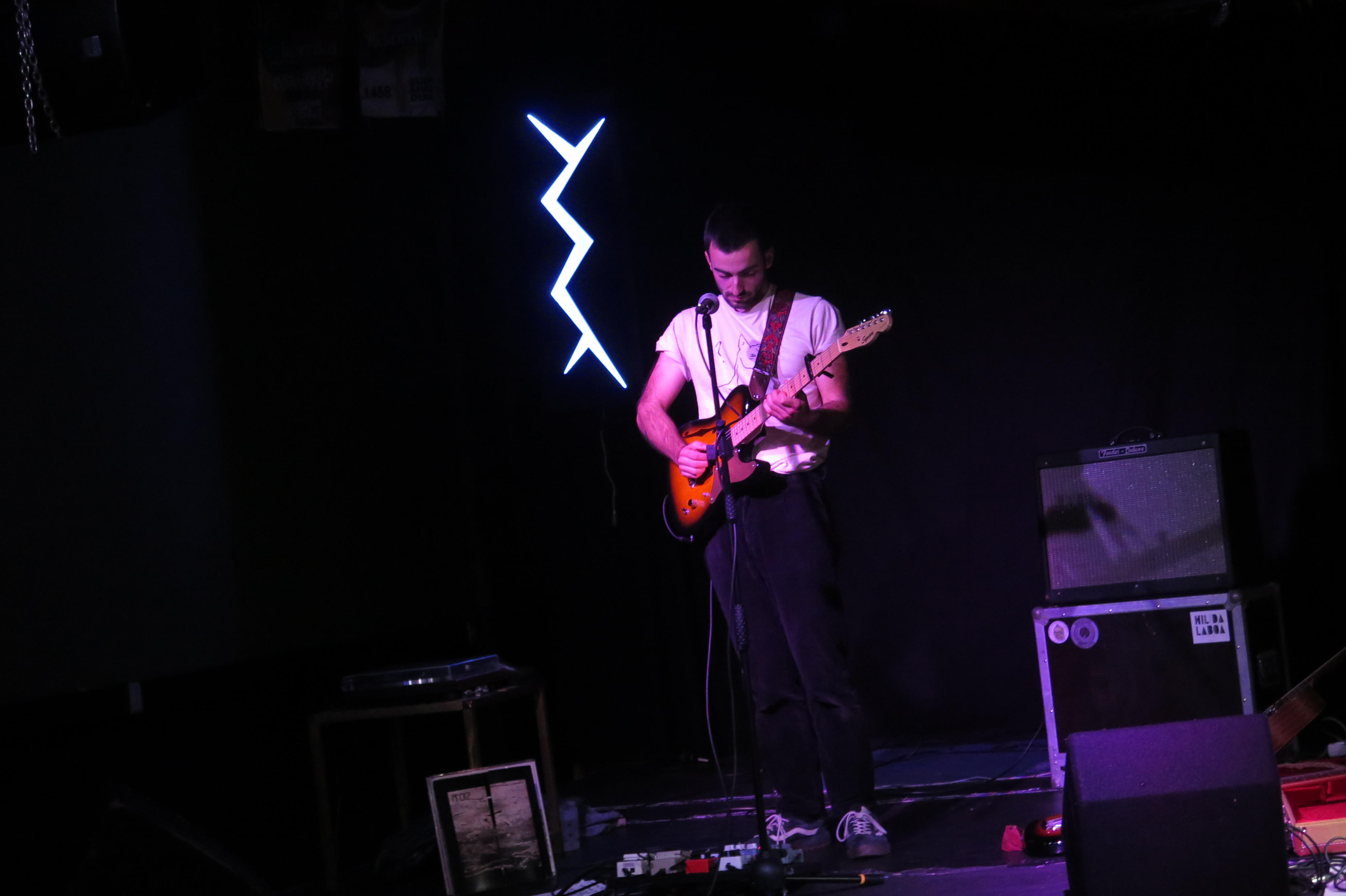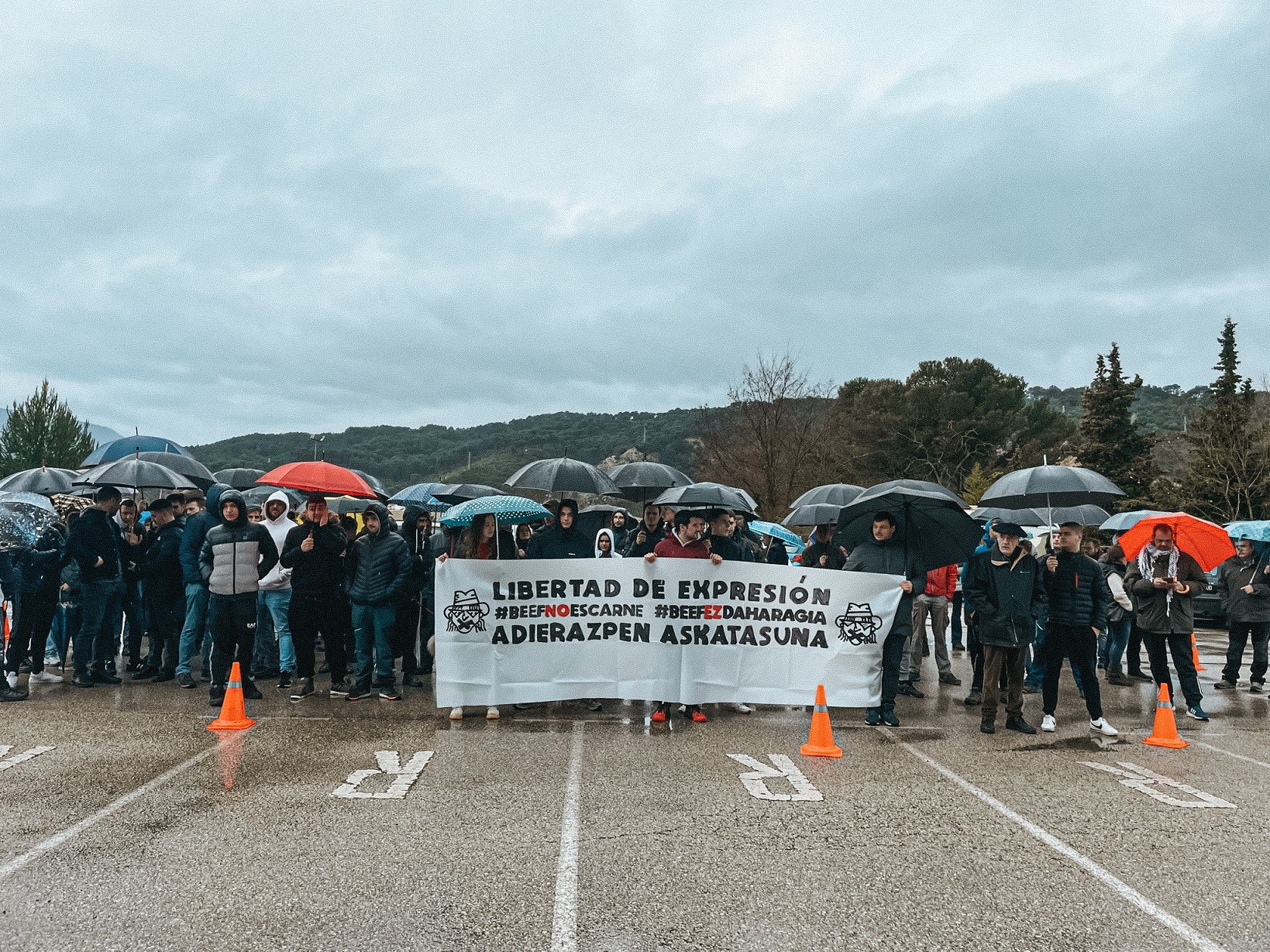Discotheque for freedom
- The Harrika collective was born with the objective of creating a more “free” and “safe” night entertainment based on care. They have been doing techno besta kuir and feminists in Vitoria-Gasteiz for two years. From 26 to 28 July the Harrikada Festival will take place in Izarra (Araba).

If you cannot sing, love and dance (or doubt), it is not our revolution,” says Anari, in the Basque version of the Asturian song Vinu, songs and love of the Asturian Nacho Vegas. Along this road runs the collective Harrika, which, starting with technical music, organizes quir and feminist festivals every month at the Jimmy Jazz in Vitoria-Gasteiz. “We want to drive the liberation movement of the holiday halls. That is, to turn the parties around,” explains Galder Beramendi, a member of the Harrika collective.
It is about promoting holiday models based on care and, above all, creating an area of freedom for women and sexually dissident people: “In Euskal Herria and in many places, unfortunately, the festivities are of the blind men, not only in quantity, but by the way of taking the space and being organized in the face of them”.
Therefore, when organizing the party, women and people are the dissident sexual genders and for them the first rows of the room are kept. “Tekno festivals are very masculine, so it is our responsibility and our job to ensure that the first lines of the festival are for women and subversive identities,” explains Uxue Alonso, a member of the Harrika collective. They also choose the artists of every night based on this criterion. In addition, they take into account the presence of novice, long-standing artists, both local and international. Erika Roselló, Elena Barker, Beatrice and Alaine MRK are some of the artists who have visited the Stone.
“Tekno festivals are usually very masculine, our responsibility is to ensure that the first lines are for women and subversive identities.”
The members of the surveillance team turn around the room with a shiny bangle. It's about anyone who needs something identifying them. “We’re not sure and we’re not there to throw anyone. We try to educate and explain when someone doesn't meet the standards, but in the juerga environment it's very difficult. If they don’t understand that they can’t play like that, we remove them from the room,” Alonso said. It is a group of seven women who want to make visible the work that women usually do in the “shadows”: “After all, what the care team does is what women and dissidents have always done in the play, we always take care of and ask others how they are”.
Although they have some consensual things, doubts and debates arise in the collective. In the case of the care group, for example, although they want to show that care is very feminized, sometimes they think that the inclusion of people with dissident sexual genders, in addition to women, can be “enriching”: “We are not closed for people to come or not to come, I think the participation of other dissidents can be nice.”
The feminist movement as a base
Although the achievement of safe spaces is “impossible”, a number of standards have been set to try to ensure “to the maximum” surveillance. On the one hand, the portal explains the rules of the party so that the people who enter the room pass some screening. “So people know what space it is going to go to,” says Beramendi. On the other hand, stickers are distributed at the entrance to cover the cameras of the mobiles, as it is forbidden to take photos and record videos: “Because of this, some people know where they go in and decide not to enter.”
For Beramendi, this type of space offers the possibility of being “more comfortable”. He, for example, wears and quieter nozzle when he goes to the Stone: “The more naked it doesn’t mean you’re freer, but it’s true that by not being able to take an image, you can feel more comfortable dressed or maimed with something you don’t usually wear.” However, there is no fixed aesthetic and everyone can put on whatever they want. He adds that playing with aesthetics can help to express identity: “In Euskal Herria we are very square for parties; having a space to promote creativity is beautiful.”
.jpg)
In addition, they have a protocol to meet the needs of each moment and are preparing a more “profound” protocol. “We are constantly learning, and what we have been most hesitant about is how to respond to the assaults on dissident sexual genders. We have had to work a lot and we are constantly changing,” Alonso said.
Alonso takes care of the protocols: “Creating a protocol is very simple, the hardest thing to do is put it into practice. That’s what worries me the most, so we’re continuously learning and changing.” These festive environments have not come out of nowhere, but are based on a series of measures that the feminist movement has long called for: “We have not invented anything, I am sure that if this festival is possible thanks to the advances, the works and the protocols carried out by the feminist movement. I will always be very grateful.” During the process, Ehgam has also spoken to the members of the Sexual Liberation Movement of the Basque Country.
Although the main party is held at 01:00 in the Jimmy Jazz Lounge, at 22:00 in the Txapelarri bar of Vitoria-Gasteiz they start to warm up for the party. It includes artists from the area of Vitoria-Gasteiz who start DJ in the world. Then, the DJs of the Harrika collective open the night, followed by a performance and a well-known DJ.
A window
Diego Ramírez de Ganuza is not clear when it was the first time he left to the Stone, but he knows it was the third or fifth in the Stone. Since then it has been present in almost all the Peñas. He feels comfortable and says it’s a “window”: “If you’re a dissident person Harrika gives you the security to wear different things or dissident garments.”
Unlike stone, other spaces of juerga in general are “very strange” due to the need to explain and educate “constantly”: “In Vitoria there are kuir spaces, but many times they are linked to education, that is, as we are kuir people we must have to educate others. But I’m not a teacher of anyone and I don’t have to be justifying how I am and explaining to anyone.”
“We don’t bring the tough techno on the market; we bring a more comfortable and dancing technician for someone who doesn’t know it.”
For this reason, Ramirez de Ganuza believes that a meeting point is necessary for cisheteros who are out of the norm combining inclusion and care: “It’s very difficult for a space to be safe and inclusive at the same time, but Harrika wants to achieve that goal with the surveillance team, with the collective and developing a community, I think it’s a very attractive idea.” Considers that a balance needs to be struck between inclusion and security: “If we want a space to be inclusive, for better or for worse, all people should be included. That is in danger, we have to find ways to combine both.”
Considers that it is necessary to enter and strengthen among all the agents participating in the Festival: “As a Kuir person, the hetero rule is very hard and we all know how those who are in the hetero norm like protagonism.”
Festival against festivals
They've been organizing techno nights for two years, but before they started sowing seeds. In 2018, a festival called Harrikada was organized in Álava. The aim was to bring the atmosphere of the bars of Berlin to Euskal Herria, but with the pandemic everything was abandoned. Two years ago, they were offered the opportunity to host a party every month in the Jimmy Jazz room. Since then, the party is organized on the second Fridays of most months.
The 2018 festival was an essay and this year they plan to organize the Harrikada Festibala. “It’s nice what we do inside the room, but we also want to go outside,” said Beramendi. It will take place from 26 to 28 July in Izarra (Álava). They are trying to bring together technical music, surveillance and the rural environment. “We want to make a festival against festivals. Now, in Euskal Herria, macro festivals are taking on prominence, and small ones are being eaten. They are large and massively crowded, they touch the artists of all times and are based on the logics of capital, that is, consumption,” he adds.
The idea is to make a “small” festival for 300-500 people and weave a network. The festival will involve Basque and international groups: “We want to be showcase for the collectives working with the Basque technician.” For this reason, collectives such as EMA, Apeta, Mixthética, Redlux or Frenen have been invited. At the international level, Nastia and Tauceti have been invited. So there will be artists of different styles, but they are all based on the technician. You can hear dark, fast, slow, tense melodies, etc. Always keeping the essence of the Stone. “We don’t bring that tough techno out there on the market; we bring a more comfortable and dancing technician to someone who doesn’t know it.”
.jpg)
Bidea da helmuga
Kokein
Balaunka, 2024
--------------------------------------------------
Eibarko rock talde beterano hau familia oso desberdinetako lagunek osatu zuten aspaldi eta ia fisurarik gabe hamarkadatan eutsi dio. Izan ditu atsedenak, gorputzak hala eskatu... [+]
Elgarrekin izena du Duplak egin duen aurtengo abestiak eta Senpereko lakuan grabatu zuten bideoklipa. Dantzari, guraso zein umeen artean azaldu ziren Pantxoa eta Peio ere. Bideoklipa laugarrengo saiakeran egin zen.
Duela 150 urte, 1875eko martxoaren 7an jaio zen Maurice Ravel musikagile eta konpositorea, Ziburun. Mundu mailan ospetsu dira haren lanak, bereziki Boleroa. Sarri aipatzen da Parisen bizi izan zela, kontserbatorioan ikasi zuela aro berri bateko irakasleekin, munduko txoko... [+]
Zuloa
Merina gris
Sonido Muchacho, 2025
-------------------------------------------------------
Euskal Herrian ez da orain arte horrelako musika elektronikorik egin. Esango nuke Merina Grisek historian euskaraz egin den elektronika eta hyperpop diskorik landuena egin... [+]
Gazteagotan baino lotsa handiagoa dauka, baina horrek ez dio saltsa askotan ibiltzeko gogoa kentzen Leire Zabalza Santestebani (Iruñea, 1990). Beste gauza askoren artean, Motxila 21 musika taldeko kidea da. Nabarmendu du musika gauza asko aldarrikatzeko bide izan... [+]
Bidai on bat
Braulio
Autoekoizpena, 2024
-----------------------------------------------------
Nik ez nioke talde bati Braulio izena jarriko; eta seguruenik inork gutxik hasiko luke lan bat sei minutuko iraupena duen kanta batekin. Baina hauei parra die eta horri esker... [+]
Hiuzz + Bloñ + Adur
Noiz: otsailaren 15ean.
Non: Iruñeko Aitzina tabernan (Egun Motelak kolektiboa).
--------------------------------------------
Larunbat goiza Iruñean. Neguko eguzkitan lanera doazen gizon –eta ez gizon– bakarti batzuk... [+]
Things aren’t easy in fact, and it will be for one reason or another, but lately I’ve bitten my tongue more than I should for these two things: the culture of the sold out and the FOMO – the latter perhaps has to be explained, because it’s not said so many times: the... [+]
Ultra
La Furia
Baga Biga, 2024
---------------------------------------------------------
Cascanteko La Furia-k bosgarren diskoa plazara atera du. Mimoz eta erraietatik, berarentzat funtsezkoak diren osagai horiekin, prestatu du honako pozima, pozoitsua eta aldi berean... [+]
EMEADEDEI + MAHL KOBAT
WHEN: February 2nd.
IN WHICH: In the youth center of Zuia, Murguía.
----------------------------------------------------
On September 20 of last year, we first heard about collective music in the profile of the social network they had just created:... [+]












